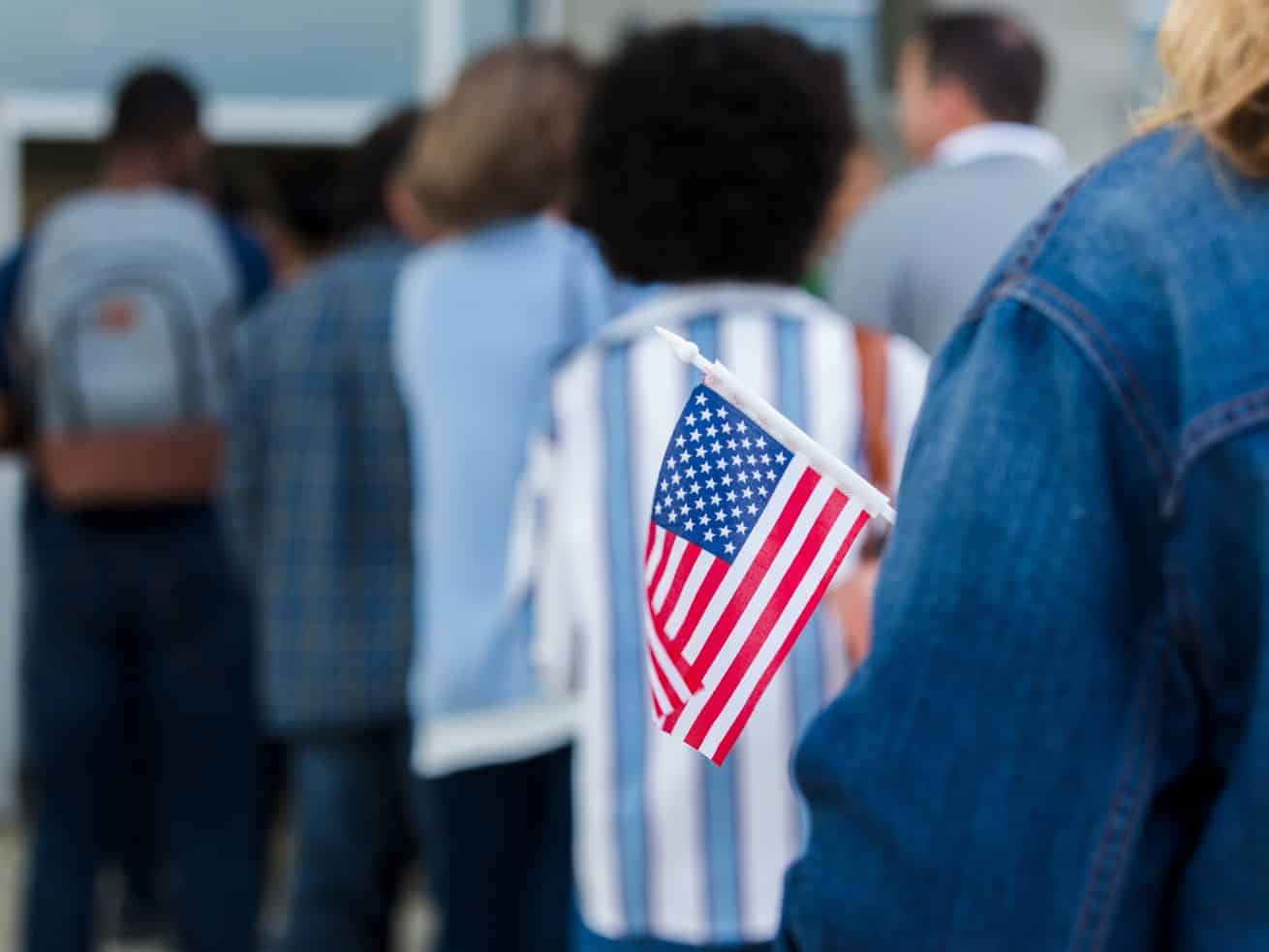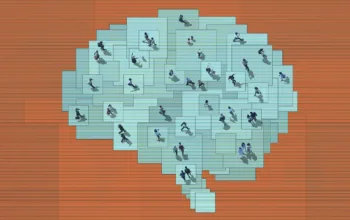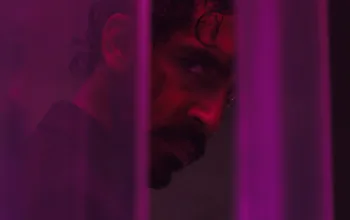Three voters explain what it takes for them to cast a ballot in a state where Republican lawmakers want to adopt even stronger restrictions.
Texas already has some of the most restrictive voting laws in the country, but that hasn’t stopped Republican state legislators from wanting to make it even harder for residents to cast a ballot.
The latest Republican voting bills (one version in the state House and another in the state Senate) would end measures that led to record turnout in several Texas counties last year and increased accessibility for vulnerable populations. For example, it would prevent drive-through polling sites in the state, implemented to prevent the spread of the coronavirus, and require individuals who assist non-English speakers and disabled voters to submit additional paperwork. Plus, if signed into law, Texas would give more power to partisan poll “watchers,” meaning officials would have a hard time removing people who could be harassing voters. The bills would also ban 24-hour voting, which makes casting a ballot easier for residents who work long or odd hours, and establish new ID requirements for mail-in voting, among other restrictions.
Texas Gov. Greg Abbott has claimed that the restrictions are necessary to prevent fraud, even though he admitted to not being able to identify widespread voter fraud in the 2020 election. In an effort to prevent the bills from advancing in the legislature, Texas Democrats fled the state last week and plan to stay away until the special session expires in August.
But if Abbott holds another special session and the bills pass, the law stands to disproportionately disenfranchise Black and Latino voters, disabled voters, elderly voters, and immigrants who relied on the innovative methods that expanded access to the ballot box in 2020. Across Texas, 53 percent of voters who used drive-through voting last year were Black, Latino, or Asian. In Harris County, where Houston is located, they introduced drive-through voting and boasted a 66 percent voter turnout rate — the highest in almost three decades.
“Last year we had incredible access to the ballot because of the many creative mechanisms that expanded our options for voting,” said Annie Benifield, a 64-year-old Harris County resident. But with the threat to drive-through voting, Benifield fears that her fellow Texans and Harris County neighbors won’t vote in the future. “Voting should be convenient and access should not depend on the zip code you live in or the color of your skin,” Benifield said.
Vox spoke to Benifield and other voters in Texas about how the bills’ voting restrictions would further complicate how they vote, from adding hours to the process to sitting out of voting altogether. Their remarks have been edited for length and clarity.
“If I had not had access to drive-through voting last year, I would not have voted”
Brittany Hyman, 35, Harris County
At the time of last year’s election, I was working virtually. I had just accepted a new position as an executive director of marketing and communications. And since my toddler’s school was shut down due to the pandemic, I was homeschooling her. I was also pregnant.
/cdn.vox-cdn.com/uploads/chorus_asset/file/22732832/brittany.jpg)
Nonetheless, my experience with voting as a resident of Harris County was actually really easy. I was able to pack my daughter’s things up and put her in the back of my truck because the state had instituted drive-through voting. I didn’t have to worry about interacting with anyone. I Googled where the closest drive-through location was and drove there. We were in and out within 15 minutes.
What was really great was that I was able to tie the experience to my daughter’s homeschooling. I am by no means a teacher, but I was able to work in a lesson about voting — what voting is and why it’s important. She was able to ride with me and see me vote and then they gave her a sticker.
We have always brought her with us to vote so that she understands that this is something we do as a family. And that we do this because we care about our community. It is our responsibility. It was important to show her that we could still vote safely during the pandemic.
But afterwards I became very vigilant because lawmakers in our state started talking about throwing out our drive-through votes. We were lucky we had local elected officials who had fought hard to ensure that the votes didn’t get thrown out and that I wouldn’t have to vote again. Still, it gave me a lot of anxiety. I was also thinking about people with disabilities, people with compromised immune systems, and parents who have hectic schedules. There are so many people who would have been excluded if the option for the drive-through vote was removed.
If I had not had access to drive-through voting last year, I would not have voted. I didn’t want to risk it. My household was taking quarantining seriously. We didn’t see family. We didn’t order food. We were sealed up as tightly as possible because we didn’t want to put the new baby at risk. And I could see how drive-through voting can help people who aren’t as privileged as I am, even when there isn’t a pandemic. It can help so many people who want to participate.
There is so much that goes into these voting restrictions that target people who have multiple jobs, people who are immigrants, people who have low incomes, Black and brown people, people who don’t own property, and people who have traditionally been marginalized and already feel like the voting process was not set up to be inclusive. They feel like it was set up to keep them disenfranchised. And the basis for these restrictions is unfounded. Their claims of voter fraud are unsubstantiated, but they have still already negatively impacted us with their rhetoric. This could have lasting effects for years to come.
“People with disabilities also have a right to a private vote”
Nancy Crowther, 64, Travis County
I live in Austin, Texas, and I am a person with a disability who uses a motorized wheelchair to get around. My disability is a narrow muscular one — so I am physically weak, but I’m not mentally.
/cdn.vox-cdn.com/uploads/chorus_asset/file/22731532/Image_from_iOS__19_.jpg)
Last year, during the pandemic, all of the opportunities and options that I once had to vote suddenly disappeared. Normally in my area, I could take part in “no excuses early voting” if you were concerned you may not make it on Election Day. And I have a lot of locations close to me — a library, a junior college, a high school, a grocery, an elementary school — where I used to be able to early vote. But not last year.
Given the Covid pandemic, I was like, “Oh gosh, don’t make me go to my polling place!” So I decided that I would get a ballot by mail, but then I didn’t get my ballot for several months. And right before the election, our government got involved in the mail service, and I thought, “Why would they get involved with the mail service unless some mail-in ballots could get lost?” I got really uneasy about putting my ballot into the mailbox.
At the time, a friend of mine told me they drove past a blue box that was stuffed full of mail-in ballots. Each county was supposed to get four of those boxes where we could drop off ballots, but then our governor said it would only be one per county (there are 1.2 million people in Travis County, according to the latest census). So then we were all like, “Where the heck are you going to put it?”
The location of the box turned out to be nine to 10 miles from my home. So I told myself that I’m just going to have to do it. I’m going to have to put on my my mask, pack a bag, ride the bus, which was the big pandemic issue. Not only did I have to ride the bus once, but I had to transfer and ride the bus a second time. It took me over an hour and a half to get there.
I saw a line of cars and said, this must be the line to drop off my ballot “in a safe location.” So I got in line and one of the workers came up to me and asked where my car was. Turns out I was in a line for car registration. He saw a ballot tucked into my belt and told me that where I was trying to go was way over there, pointing to white canopies across the way. There was no signage. That made me mad.
Then when I finally got there, I had to sign my life away. I had to provide an ID card. My signature on the envelope apparently wasn’t enough, so I had to add my signature to a form on a clipboard. I was then wondering if they wanted a blood sample. [Laughs] I was willing to offer them whatever they needed because I wanted to get my vote counted. It was important to me. And then I finally got it into the infamous box, the only box in Travis County. Then I had to turn around and redo the whole trip to come back home. They made it so difficult that nobody I know would want to go through that type of ordeal.
As an activist and disability advocate, over the years we’ve worked so hard to give people with disabilities options. We helped establish early voting, which was open to anybody at any time. We didn’t segregate or discriminate. We made the voting machines more accessible to people with disabilities and we made the locations more accessible. We were in voter heaven. But then it was voter hell.
They are making it harder for people who don’t have ID cards or who don’t drive. One of the bigger populations that doesn’t drive are people with disabilities of all ages, and seniors who shouldn’t be driving. It’s going to be tough, but that’s the whole idea.
When it comes to the greater power Republican lawmakers want to give to poll watchers — Yuck! I am so annoyed about that. As a person with disabilities, everyone is already trying to be your helper. I don’t want people interfering by intimidating voters by their mere presence. People with disabilities also have a right to a private vote. I use a wheelchair and if someone is standing there — they’re two or three feet taller than me — they’re towering over me. All they have to do now, because we’re in Texas and it is legal, is have a gun on them! That is intimidation to scare away the voters. For anybody with a disability or mental illness, it can cause undue stress. I want my vote to be private just like everyone else.
“Democracy is about inclusion. It is not about exclusion.”
Annie Benifield, 64, Harris County
In the last few election cycles, I’ve been exercising the option to vote early. I don’t qualify for mail-in ballots because of the Texas law’s restrictive nature, which makes it that you have to be 65 — I’m 64 now. Otherwise you have to give a cause, like being out of town, if you request a mail-in ballot.
Because I volunteer with the League of Women Voters, I use my time on Election Day and night to help others vote. I’m usually doing a phone bank, answering questions for people who might have challenges finding their polling location or whether they are registered to vote. The opportunity to vote early gives me the chance to empower other voters and defend democracy because democracy is worth defending.
I believe that the zip code you live in should have nothing to do with access to voting. You should be able to vote no matter where you are and voting should be convenient to where you live. This year Harris County had a number of creative mechanisms that allowed for access, whether it was 24-hour voting, drive-through voting, or something else. A record turnout was the direct result of the push to be more inclusive.
But now many of these restrictions trying to be implemented create a sense of intimidation for people who haven’t voted in a long time, for new voters, for young voters, for elderly people, and for immigrants. Democracy is supposed to be about everybody having their voices heard, every individual getting the opportunity to participate in this selection of political leaders who make the decisions that govern our society. Any attempt to disenfranchise or limit the number of people participating in the political process is an affront to the overall idea of democracy.
Where I grew up in Alabama, my parents didn’t get a chance to cast a ballot until they were over 50 — after the Voting Rights Act was passed in 1965. My mom died in January this year at the age of 103. In November of 2020, she got a chance to cast a mail-in ballot. My dad was drafted in World War II, yet didn’t have a say in the election of political leaders. He didn’t get a chance to cast a ballot until he had been on the planet for half a century. This is what I think about when I hear of any attempt to disenfranchise.
Democracy is about inclusion. It is not about exclusion. As an African American woman and teacher who has taught about voting literacy tests and the grandfather clause and poll taxes and all these other moral turpitude tests that prevented people from participating in the political process, these current-day attempts show that we are regressing instead of progressing. I just can’t imagine that we’re fighting battles like this … in 2021.
Author: Fabiola Cineas
Read More



